Gardening is a rewarding hobby, but it comes with its share of challenges, particularly dealing with pests like aphids and scale insects.
These tiny invaders can wreak havoc on your plants, sucking their sap and stunting their growth. While chemical pesticides offer quick fixes, they can harm beneficial insects and the environment.
Thankfully, there are natural, effective ways to tackle aphids and scale insects without resorting to harsh chemicals.
Understanding the Enemy: Aphids and Scale Insects
What Are Aphids?
Aphids are small, pear-shaped insects that cluster on the undersides of leaves and along plant stems. They feed by sucking sap, causing leaves to curl, yellow, or wilt.
Additionally, they secrete a sticky substance called honeydew, which attracts ants and promotes sooty mold growth.
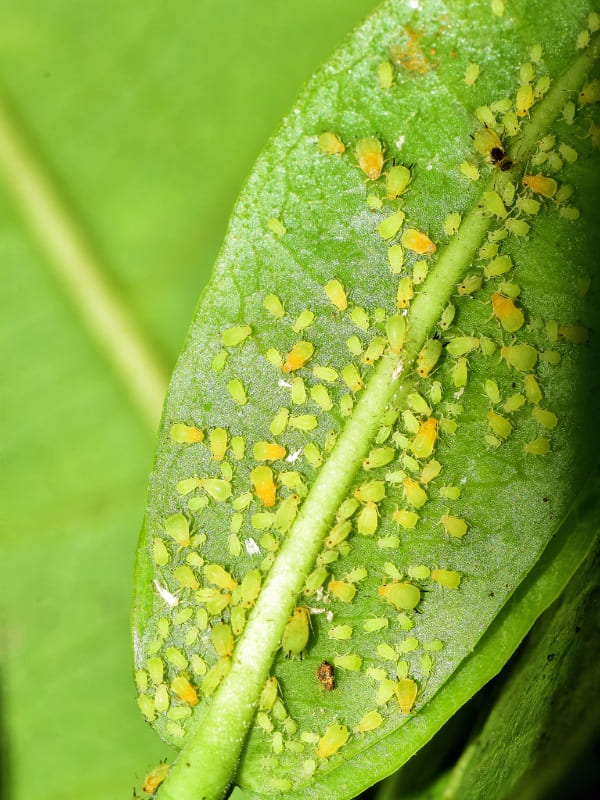
What Are Scale Insects?
Scale insects appear as small, oval-shaped bumps on stems, leaves, and branches. They are often mistaken for part of the plant due to their hard, shell-like coating.
Like aphids, they feed on plant sap, weakening the plant and leaving behind honeydew.
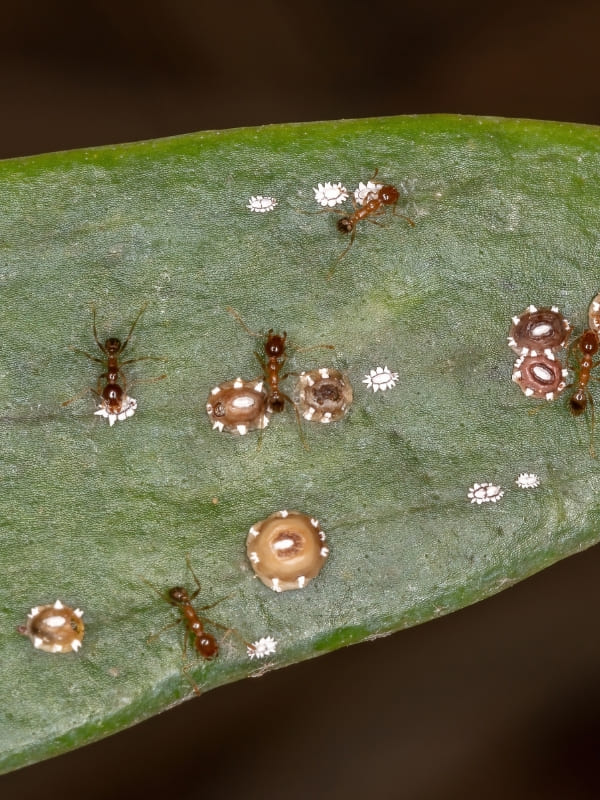
10 Natural Methods to Eliminate Aphids and Scale Insects
1. Homemade Insecticidal Soap
You can create an easy yet effective insecticidal spray by mixing 2 teaspoons of mild liquid soap (such as castile soap) with 1 liter of water in a spray bottle.
After shaking well, apply the solution to infested plants, ensuring you coat the undersides of leaves and stems. The soap works by breaking down the protective outer layer of the pests, suffocating them without harming your plants.
You may notice significant pest reduction within a few days of consistent application.
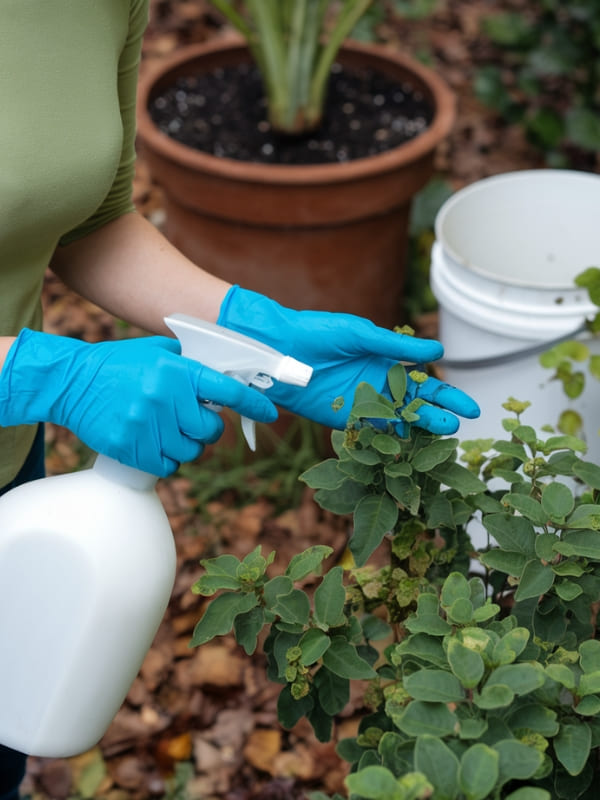
2. Neem Oil Solution
Neem oil is a powerful natural remedy against aphids and scale insects. Mix 1 tablespoon of neem oil with a few drops of soap and 1 liter of water.
Spray this mixture onto your plants, focusing on the areas where pests are most concentrated, such as the undersides of leaves.
Neem oil disrupts the pests’ feeding and reproductive cycles, gradually reducing their populations. Be persistent, as this method works best with regular applications over 1–2 weeks.
3. Introduce Beneficial Insects
You should encourage natural predators like ladybugs, lacewings, and parasitic wasps to take up residence in your garden. These insects feed on aphids and scale insects, providing an organic way to control pests.
Plant nectar-rich flowers like marigolds, dill, and yarrow near your crops to draw these beneficial allies. With time, you will notice a decline in pest numbers as natural predators establish themselves.
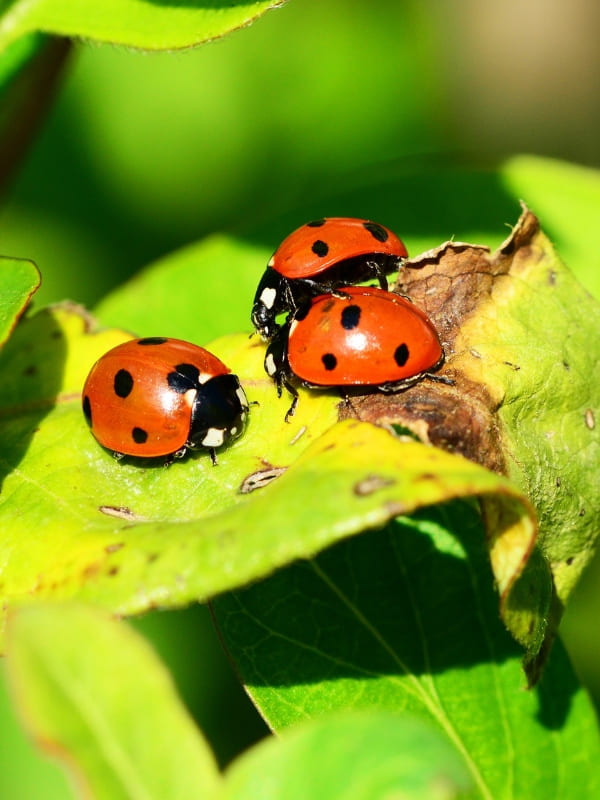
4. Horticultural Oil Spray
Horticultural oil can be a game-changer for combating infestations. Dilute 2 tablespoons of horticultural oil in 1 liter of water and spray it generously onto affected plants.
The oil coats the pests, suffocating them and preventing their eggs from hatching. You should reapply every 7–10 days to achieve long-term results.
5. Garlic and Onion Spray
First, blend 1 onion and 2 garlic cloves with 1 liter of water, then strain the mixture before spraying it on your plants.
The pungent smell repels aphids and scale insects, while the antibacterial compounds promote plant health. Reapply every few days or after rainfall to maintain effectiveness.
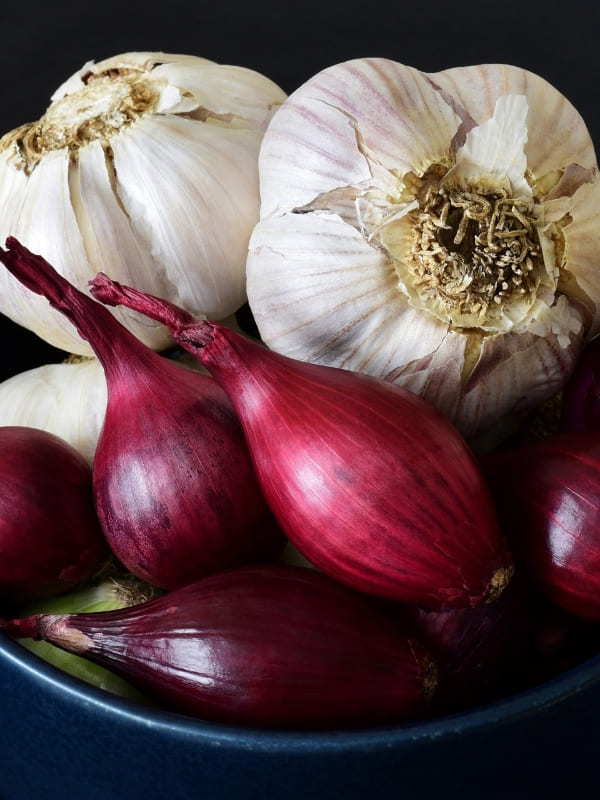
6. Diatomaceous Earth
If you’re looking for a physical barrier against pests, try sprinkling food-grade diatomaceous earth around the base of infested plants. This natural powder dehydrates pests on contact.
You just need to apply a thin layer around vulnerable plants, focusing on areas where pests are active.
7. Companion Planting
Companion planting is a proactive approach to pest management. Grow pest-repellent plants such as mint, basil, and nasturtium near crops vulnerable to aphids and scale insects.
These plants emit scents that deter pests while attracting beneficial predators to your garden. Over the season, you’ll notice fewer infestations and healthier crops.
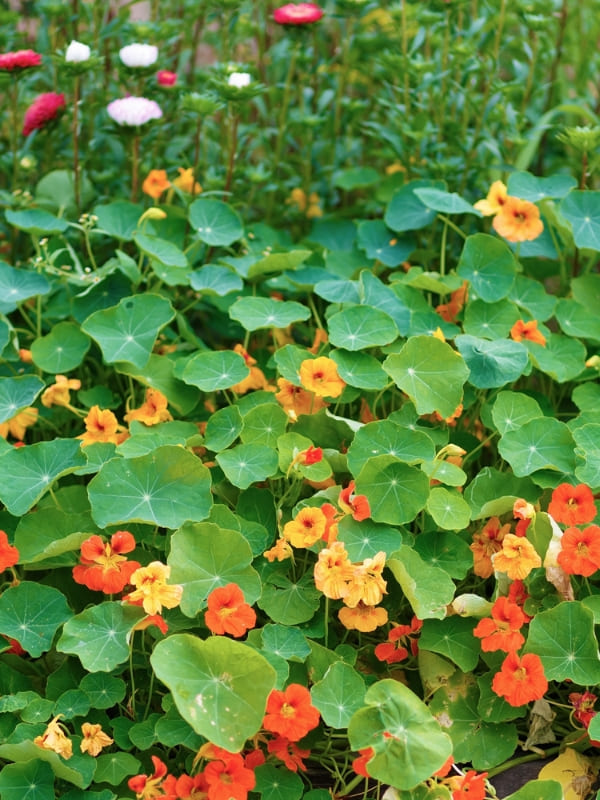
8. Pruning Infested Areas
If pests have heavily infested certain parts of your plants, pruning can be an effective solution. Cut off affected leaves and stems, ensuring you seal the waste in a plastic bag to prevent pests from spreading.
Dispose of the bag far from your garden and monitor the plant for signs of re-infestation. You can combine pruning with other methods, such as neem oil, for enhanced effectiveness.
9. Strong Water Spray
For smaller infestations, you can dislodge pests using a strong spray of water. Use a garden hose to target affected areas, paying close attention to the undersides of leaves.
The force of the water washes away pests without harming your plants. This method is natural, but persistence is needed. Repeat every few days for best results.
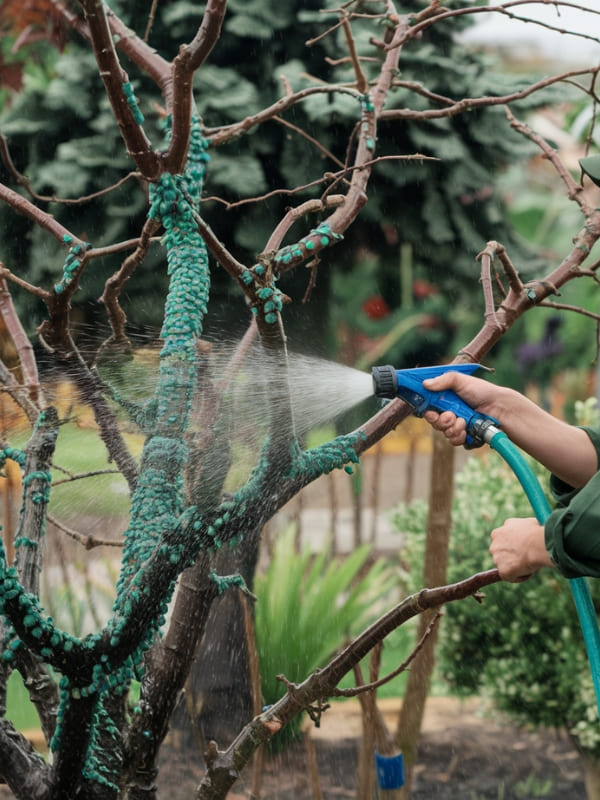
10. Use Sticky Traps
Sticky traps are a passive yet effective way to manage flying adult pests. Place yellow sticky traps near infested plants to catch pests like aphids before they reproduce.
These traps provide early warning signs of future infestations while reducing pest numbers. Check and replace traps regularly to maintain their effectiveness.
Why Natural Methods Work Best
Natural pest control methods not only eliminate aphids and scale insects but also protect beneficial insects like bees and ladybugs.
Additionally, these solutions are safer for pets, children, and the environment, making them ideal for eco-conscious gardeners.

Cautions and Precautions
Always test natural sprays on a small section of the plant to ensure no adverse reactions occur. Overusing sprays like neem oil can harm plants if applied too frequently. Follow recommended usage guidelines.
Spray treatments in the early morning or evening to prevent leaf burn caused by sunlight. Avoid spraying when bees or ladybugs are active to minimize disruption to your garden’s ecosystem.
Some natural solutions, like neem oil or diatomaceous earth, may cause irritation to humans or pets if handled improperly. Always follow usage instructions carefully and wear protective gear when applying sprays or powders.
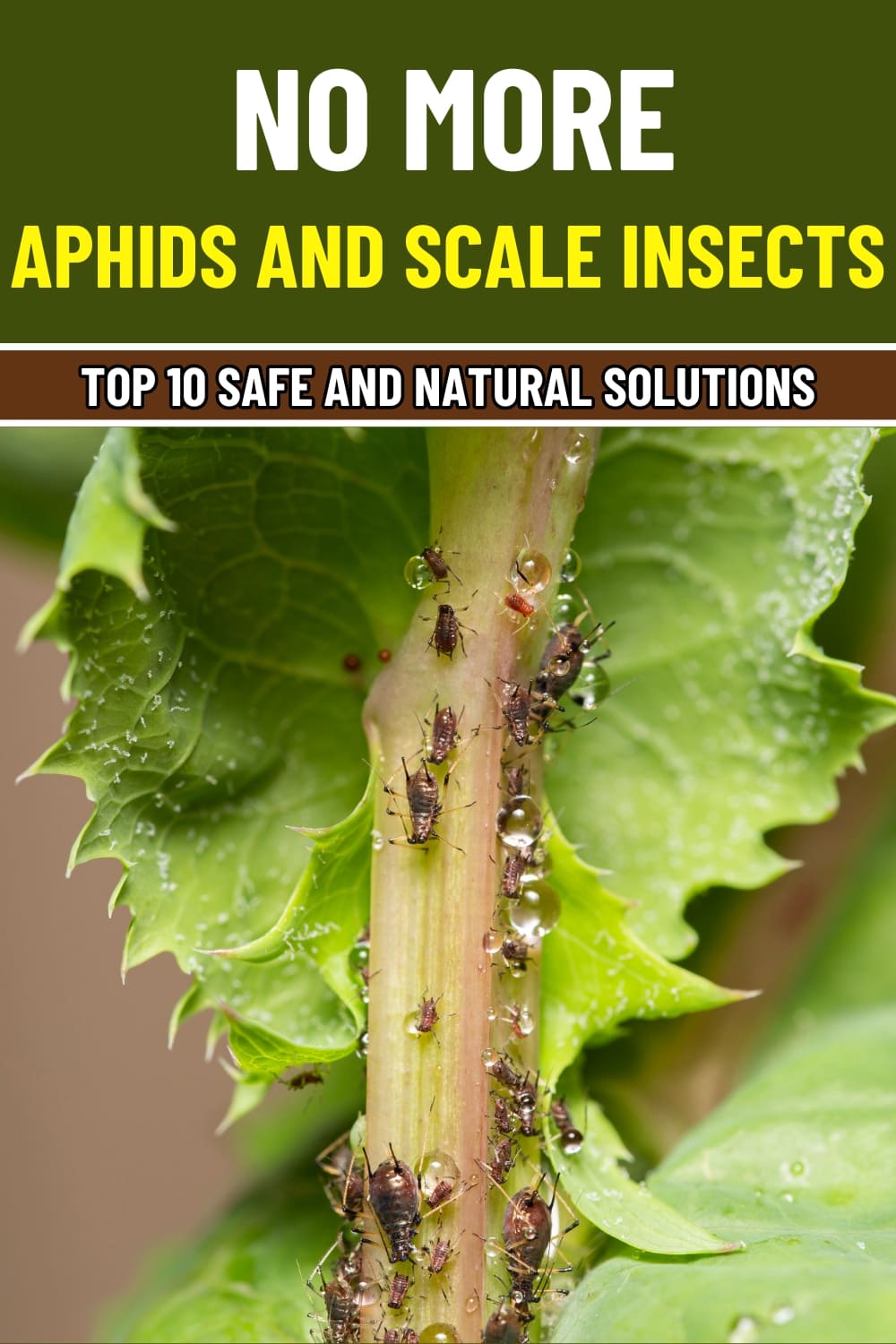
10 Proven Natural Methods to Eliminate Aphids and Scale Insects from Your Garden
